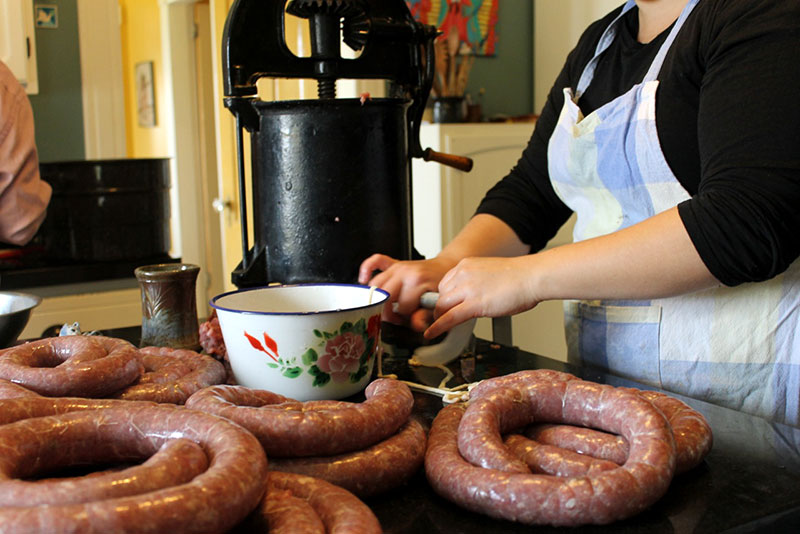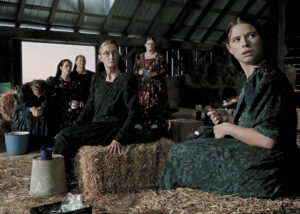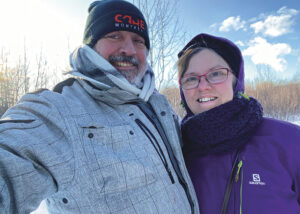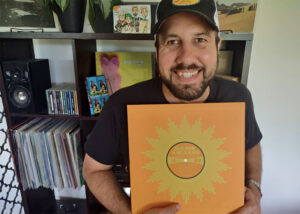All I knew about pig butchering before I did it myself was the Low German saying that translates as, “good weather for slaughtering pigs,” which somehow surfaces from my subconscious on brisk sunny days in the fall. I also knew that if people learn you plan to turn three pigs into sausage, a good number of them want in on the action. We could have charged admission.
That is the mystery. Why would we choose blood, guts and lardy carcasses—not to mention five months of feeding, shovelling and occasionally chasing—over Superstore? The pig experiment was emblematic of a larger life-sized experiment my wife and I have embarked on.
Fourteen months ago, we lived in an old apartment overlooking the dumpsters and dysfunction of downtown Winnipeg. Now we call an old three-hectare farmyard near Morden, Man., home. We’re rookie ruralites. And we’re not alone.
Last summer, Kalynn Spain travelled to more than 80 Manitoba farms engaged in direct marketing to consumers as part of a research project. Of those, about a quarter were run by people who made the move to farming within the last several years. Spain—a 25-year-old who attends Hope Mennonite Church in Winnipeg—is eager to become a rural farmer herself.
Dutch scholar Jan Douwe van der Ploeg would say Spain and I are part of a re-emerging global peasantry. He says that the values we live out imply “a rupture in the trend to modernize farming,” a reversal of the agri-food system that presides over obesity, rural decline, unconscionable corporate profits, a billion hungry humans, and pre-packaged disconnection from food and the land. He says peasants are not failed agrarian entrepreneurs, but people living a different set of values, often because the agri-food system has failed or alienated them.
Amidst all my work, I have to remind myself regularly of the merit of this other set of values. I tell myself that butchering pigs is the opposite of a stereotypical office job. I was outside. I was active. The work was varied. Kids were running around, sometimes in horror. Wine was flowing, in Mennonite moderation, of course. The outcome was tangible and satisfying. The rhythm of the day was not dictated by clock or boss. We all wanted to be there.
Of course, no one made any money either. Financially, Superstore would have made more sense. But the whole point is to live for something more than deals and convenience. Like being able to give a respected elder—one who would recognize good butchering weather—farmer sausage fresh out of the smokehouse I just built with help from my dad and a neighbour out of reclaimed lumber. Or watching my six-year-old run to the garden to pick a cucumber to chomp on. Or the first irresistibly red raspberry of the year.
There is something of pure gift in it all. The simplest miracle of a new sprout pushing through warm soil or a chick growing. It is this element of gift that both humbles and creates generosity better than any sermon ever could. It is of God. It is the element that makes it easier to pray over potatoes from the garden than a storyless extra-large pizza. It is this element that makes me want to give guests tomatoes straight off the vine to take with them, although I would never send them home with store-bought produce from the fridge.
I don’t want to idealize our life. Pig excrement stinks, even if a meadowlark is singing in the background. We drive more than we used to. Our chicks didn’t grow as miraculously as hoped. My son might not have had a tantrum if I had been parenting instead of frantically building a smokehouse the day before slaughter. And he may resent me one day because we won’t be able to afford dirt bikes like the neighbours.
I also don’t want my values to solidify into ideology. Not everyone can or should live like me. Diversity is good. God bless city slickers, vegetarians and my pesticide-using neighbours who also partake of the gift of soil and seed.
I tell my little story only in the hope that it may fan a peasant flame or two. Spain says she feels called as a person of faith to care for the land and provide healthy food. “I feel like it’s a gift,” she says. For others who feel that call, I know of an occasionally idyllic spot with plenty of extra space for cucumbers and pigs where someone could experiment for a season.








Leave a Reply
You must be logged in to post a comment.